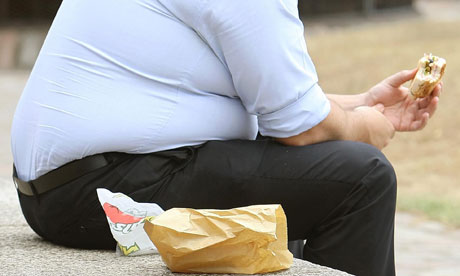Years ago, after a plane trip spent reading Fyodor Dostoyevsky’s Notes from the Underground and Weight Watchers magazine, Woody Allen melded the two experiences into a single essay.
‘I am fat,’ it began. ‘I am disgustingly fat. I am the fattest human I know. I have nothing but excess poundage all over my body. My fingers are fat. My wrists are fat. My eyes are fat. (Can you imagine fat eyes?).’
It was 1968, when most of the world’s people were more or less ‘height-weight proportional’ and millions of the rest were starving. Weight Watchers was a new organisation for an exotic new problem.
The notion that being fat could spur Russian-novel anguish was good for a laugh.
That, as we used to say during my Californian adolescence, was then. Now, 1968’s joke has become 2013’s truism. For the first time in human history, overweight people outnumber the underfed, and obesity is widespread in wealthy and poor nations alike.
The diseases that obesity makes more likely — diabetes, heart ailments, strokes, kidney failure — are rising fast across the world, and the World Health Organisation predicts that they will be the leading causes of death in all countries, even the poorest, within a couple of years.
What’s more, the long-term illnesses of the overweight are far more expensive to treat than the infections and accidents for which modern health systems were designed.
Obesity threatens individuals with long twilight years of sickness, and health-care systems with bankruptcy.
And so the authorities tell us, ever more loudly, that we are fat — disgustingly, world-threateningly fat. We must take ourselves in hand and address our weakness.
After all, it’s obvious who is to blame for this frightening global blanket of lipids: it’s us, choosing over and over again, billions of times a day, to eat too much and exercise too little. Continue reading
Sources
- Aeon Magazine
- Image: The Guardian
News category: Features.




